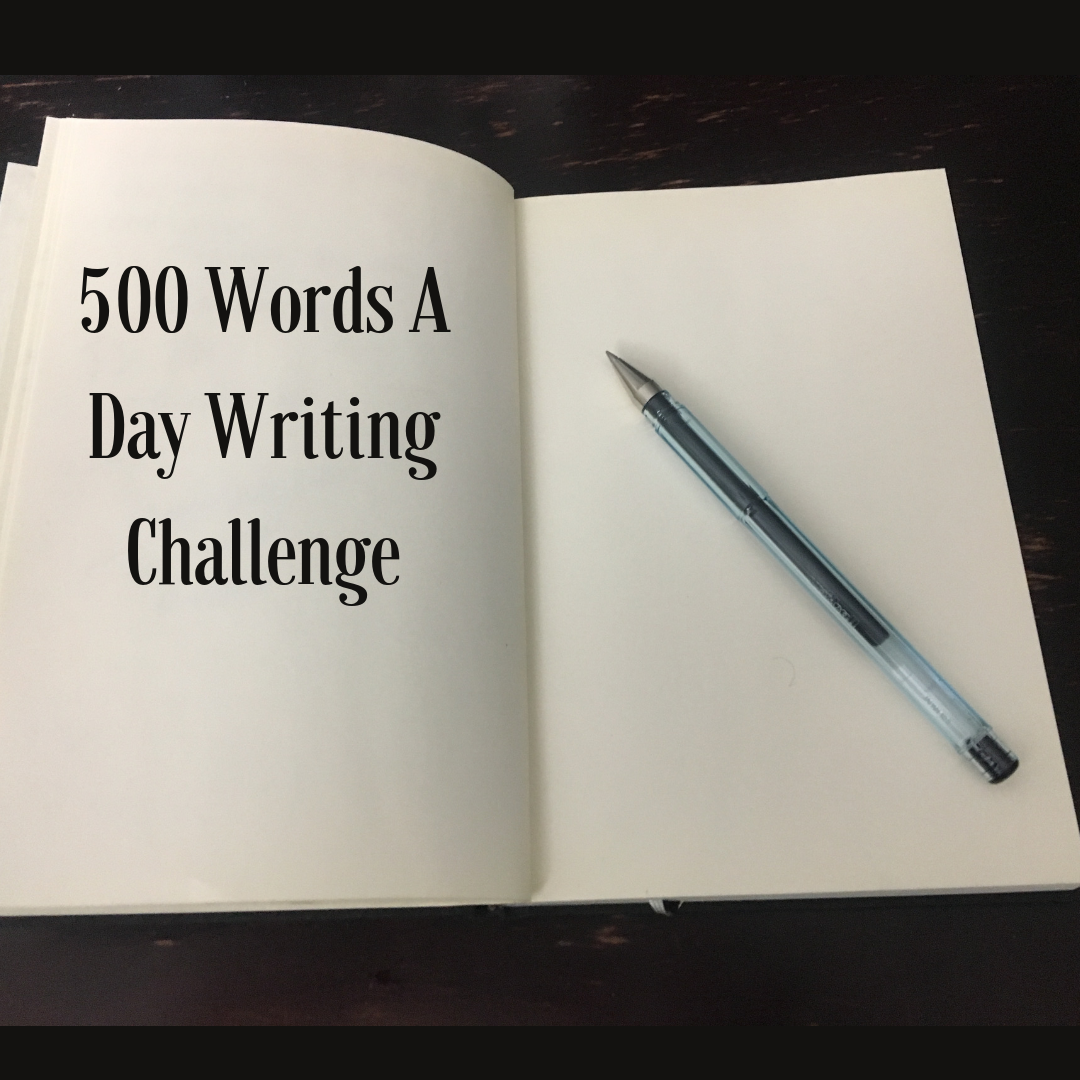500 Words A Day Writing Challenge (Week 1)
I’m not one to make New Year’s resolutions because I think that if you want to make a change, break a habit or try something new, you can do that any time of the year.
Having said all this, it was only a few days into the new year when I decided to taking on this challenge to write 500 words a day for 30 days. All of this was precipitated by an email I received from author Jeff Goins, with the subject line “Are you working on a book?”
I am “working on a book.” I put this in quotes because I do have a long term book project that I need to move forward, but if I’m honest with myself, I haven’t been doing nearly enough work or writing to move it along. For quite some time, I’ve been saying to myself that I’ve got to get back into the regular habit of writing, which at a minimum would be writing something in my journal on a daily basis. It’s sad that I have let this go. I have simply let other things take precedence. For me journaling is therapeutic, and at times it’s like a form of meditation on the page. It used to be a routine. I knew that it was time for me to get my priorities straight on this. The timing of Jeff’s email couldn’t have been better.
Jeff’s email invited people to work toward their goal of writing a book by writing at least 500 words a day for 30 days. I knew that I needed to get back to my long term book project, but I also have a few other book ideas brewing, blog posts that need to be written, and so on and so on. How could I pick just one thing to focus on for the 30 days? Deep down inside I knew that something had to change. I needed to re-establish a daily writing practice. This challenge had come around at just the right time, so I simply decided to commit to writing 500 words a day of something, anything.
It’s been a week and a half since I started this challenge.
How have I done so far?
Well, I’ve written something every day. Mostly I’ve been writing in my journal. Some days I write 500 words. Some days it’s less. It’s been harder than I thought to write 500 words a day, but what did I expect? I was struggling just to write daily in my journal so this is definitely an improvement.
What have I learned so far?
I need to make writing more of a priority.
All too often, I busy myself with whatever needs to be done or taken care of and leave writing in my journal as an afterthought at the end of the day. By then I’m so exhausted that I don’t feel like writing in my journal because it feels like a chore that is keeping me from going to bed. I’ve turned writing into a chore when it is usually something enjoyable and that helps me to sort through my thoughts.
I need to make space for writing.
If there are things on my mind, things left undone, or that I know I need to take care of, it’s hard for me to get in the right frame of mind to write. So I’ve either got to take care of the things that are truly time sensitive and essential before writing, or learn to put some of the things I’m preoccupied with on hold temporarily, and give myself permission to write for a block of time. In order to write I’ve go to clear some headspace.
Having a comfortable, inviting space for writing also helps. The desk where I write at has gotten really cluttered, so I started cleaning it up. I’m also going to try to take advantage of opportunities to write in other places (like libraries or public spaces) if I have my journal with me.
The importance of momentum and consistency.
If you just commit to doing something every day (no matter how much or how long) and still do a little bit on the days you don’t feel like it, like writing a few sentences, this will build momentum and combat resistance. There have been days when I’ve been low on energy and too exhausted to write, but I still did, even though I wrote less than 500 words.
This reminds me of a technique that Hemingway used when he wrote. I read somewhere that he’d purposely stop writing in the middle of a sentence or before whatever he was working on was finished, so that he could just continue with it the next time he wrote. That way he could just continue where he left off and not have to feel like he had to “get started.”
It’s good to think of writing as a habit instead of a discipline.
Jeff Goins shared this thought in one of his emails during this 30 day challenge. To make his point he compared the definitions of the two words.
He shared this definition of discipline “the practice of training people to obey rules or a code of behavior, using punishment to correct disobedience.” And contrasted it with the definition a habit: “a settled or regular tendency or practice, especially one that is hard to give up.”
All too often we hear people and writers say that it takes discipline to be a writer. But instead of setting up a bunch of rules and punishing ourselves for not following them, what if writing was a natural habit that you enjoyed? I can see how I need to treat writing less like a chore and more like a joy.



